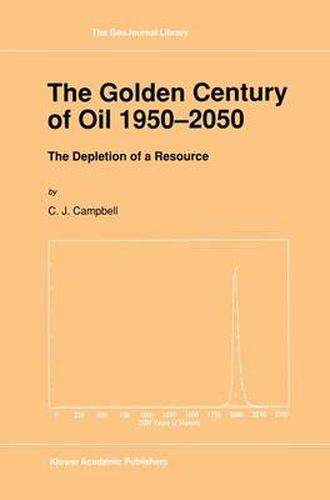Readings Newsletter
Become a Readings Member to make your shopping experience even easier.
Sign in or sign up for free!
You’re not far away from qualifying for FREE standard shipping within Australia
You’ve qualified for FREE standard shipping within Australia
The cart is loading…






This title is printed to order. This book may have been self-published. If so, we cannot guarantee the quality of the content. In the main most books will have gone through the editing process however some may not. We therefore suggest that you be aware of this before ordering this book. If in doubt check either the author or publisher’s details as we are unable to accept any returns unless they are faulty. Please contact us if you have any questions.
oil is the lifeblood of the World’s economy. It was a critical element in two World Wars and in the Cold War, and, as recent events in the Middle East confirm, people are willing to fight for it. The cheap energy it provides, especially for transport and agriculture, was one of the main factors that made possible the economic prosperity and growth that the World has enjoyed for the past fifty years and more. People rely on it everywhere, and in many forms, and they have become so accustomed to its ready availability that they take it for granted. To conceive of a world without traffic jams and airliners is unthinkable, and while not so obvious, oil lies behind every supermarket shelf, fuelling the tractor that ploughs the field and the delivery van that brings the consumer his food. Yet everyone knows that it is a finite and irreplaceable commodity, formed long ago in the geological past. What no one knows is just how finite it is. This book is an effort to try to answer that question : not in detail, but at least in orders of magnitude. More useful than the figures themselves is the discussion of the elements involved in addressing the subject. While it is impossible to predict the precise pattern of future production, which will be affected by many unforeseeable factors, one can at least begin to think in terms of resource constraint instead of an ever expanding supply of oil.
$9.00 standard shipping within Australia
FREE standard shipping within Australia for orders over $100.00
Express & International shipping calculated at checkout
Stock availability can be subject to change without notice. We recommend calling the shop or contacting our online team to check availability of low stock items. Please see our Shopping Online page for more details.
This title is printed to order. This book may have been self-published. If so, we cannot guarantee the quality of the content. In the main most books will have gone through the editing process however some may not. We therefore suggest that you be aware of this before ordering this book. If in doubt check either the author or publisher’s details as we are unable to accept any returns unless they are faulty. Please contact us if you have any questions.
oil is the lifeblood of the World’s economy. It was a critical element in two World Wars and in the Cold War, and, as recent events in the Middle East confirm, people are willing to fight for it. The cheap energy it provides, especially for transport and agriculture, was one of the main factors that made possible the economic prosperity and growth that the World has enjoyed for the past fifty years and more. People rely on it everywhere, and in many forms, and they have become so accustomed to its ready availability that they take it for granted. To conceive of a world without traffic jams and airliners is unthinkable, and while not so obvious, oil lies behind every supermarket shelf, fuelling the tractor that ploughs the field and the delivery van that brings the consumer his food. Yet everyone knows that it is a finite and irreplaceable commodity, formed long ago in the geological past. What no one knows is just how finite it is. This book is an effort to try to answer that question : not in detail, but at least in orders of magnitude. More useful than the figures themselves is the discussion of the elements involved in addressing the subject. While it is impossible to predict the precise pattern of future production, which will be affected by many unforeseeable factors, one can at least begin to think in terms of resource constraint instead of an ever expanding supply of oil.